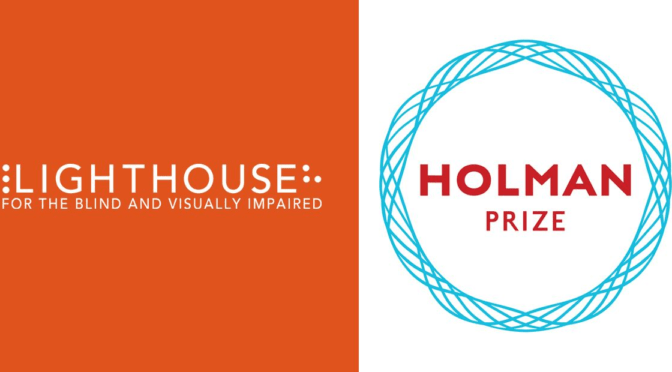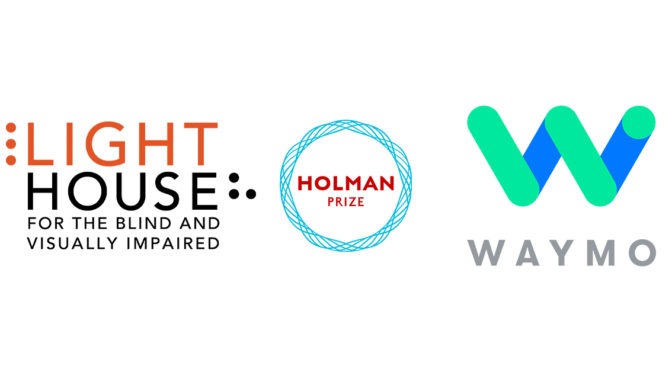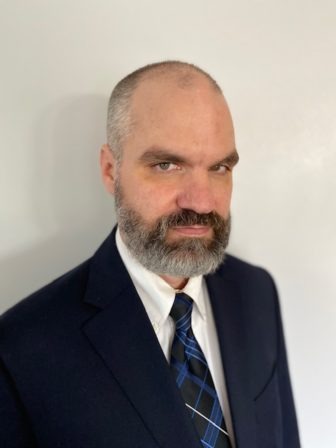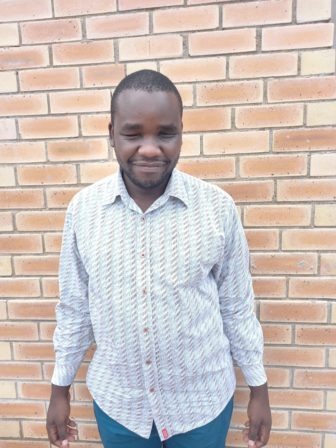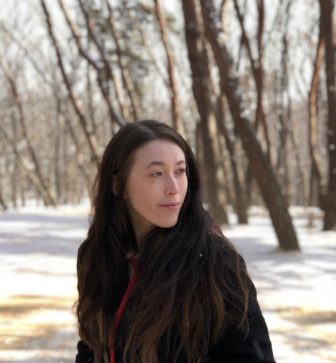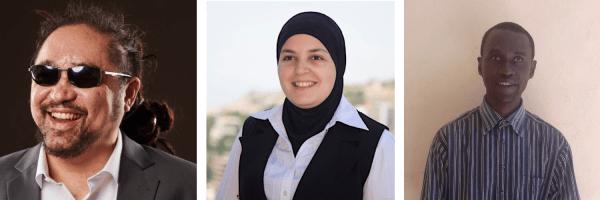A few weeks ago, we introduced you to the fourteen 2021 Holman Prize for Blind Ambition Finalists. Three from this ambitious group of blind people who want to challenge misconceptions about what it means to be blind will be selected as winners of our fifth annual Holman Prize for Blind Ambition. A special thanks goes to Waymo for sponsoring one of this year’s winners.
But who chooses the winners? Each year a panel of esteemed blindness leaders from around the world come together for discussion and debate to select the winners of the Holman Prize. All committee members are themselves blind.
For the second consecutive year, our committee will meet virtually. The fifteen members of this year’s committee reside in six countries and work in a variety of fields from law to computer science, to academia, to leadership roles in blindness organizations.
Learn more about them below.
The 2021 Holman Prize Committee
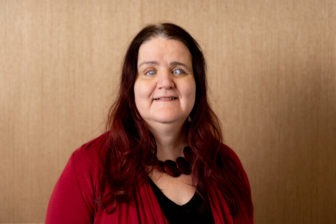
Martine Abel-Williamson, QSM
Auckland, New Zealand
President, World Blind Union
Martine is employed as a Senior Human Rights Advisor for the New Zealand Human Rights Commission. She’s on the boards of the Accessible Books Consortium, Royal New Zealand Foundation of the Blind and Blind Citizens NZ. She also holds pan-disability roles as a board member of Disability Connect, a pan-disability service provider.
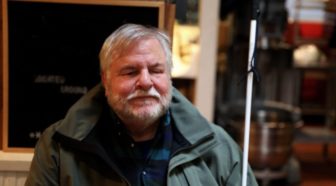
Bryan Bashin
Berkeley, California, USA
CEO, LightHouse for the Blind and Visually Impaired
Bryan has led a diverse life since he graduated UC Berkeley in history and journalism. He first spent 15 years as a journalist in television, radio and print, specializing in science news. In 1998 Bryan was hired as Executive Director of the Sacramento Society for the Blind, where he quintupled the number of hours of teaching and developed innovative programs such as the Senior Intensive Retreat and summer immersion camps. In 2004 he was hired as the Region IX assistant regional commissioner for the United States Department of Education’s west coast branch of RSA, overseeing funding for $500 million in federal disability programs. In 2010 he was hired to lead the Lighthouse for the Blind in San Francisco, leading a staff of 140.
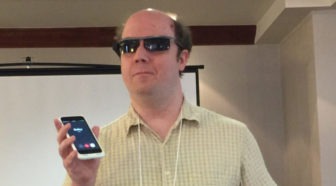
Jason Fayre
Toronto, Ontario, Canada
National Lead, Accessibility and Assistive Technology, CNIB
Jason has been working in the accessibility and assistive technology field for more than 20 years. In his current role at CNIB, he ensures that any staff who are blind are able to take full advantage of the multitude of technologies available to them. He works directly with companies such as Microsoft and Google to assist them in providing the most accessible products possible. Prior to CNIB, Jason worked for Freedom Scientific, one of the largest providers of assistive technology for people who are blind or have low vision.
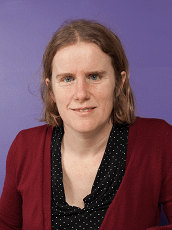
Karla Gilbride
Silver Springs, Maryland, USA
Senior Attorney, Public Justice
A graduate with honors of Georgetown Law, Karla clerked for Judge Ronald Gould on the U.S. Court of Appeals for the Ninth Circuit. Her current legal work focuses on fighting mandatory arbitration provisions imposed on consumers and workers that prevent them from holding corporations accountable for wrongdoing in court. She is also a board member for the National Employment Lawyers Association, and a member of the National Association of Consumer Advocates. She is an avid baseball fan and fantasy baseball nerd and enjoys hiking, cycling and playing goalball.
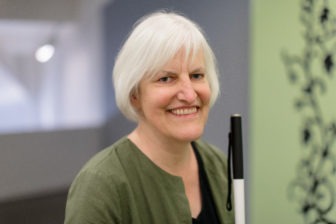
Georgina Kleege
Berkeley, California
Professor in Creative Writing and Disability Studies, UC Berkeley
Georgina has been teaching at UC Berkeley since 2003. Her recent books include: Sight Unseen, Blind Rage: Letters to Helen Keller and More than Meets the Eye: What Blindness Brings to Art.
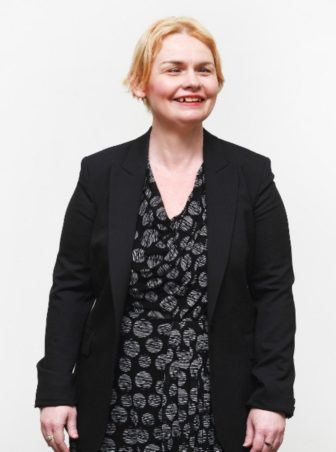
Karen Knight
Brisbane, Queensland, Australia
General Manager of Client Services, Vision Australia
A proud Australian, Karen spent the first fifteen years of her career as a psychologist specializing in youth suicide prevention and mental health promotion. It is her lived experience and many years involvement in the consumer movement of blind people in Australia that has shaped her views about best practice in blindness service delivery. Karen is passionate about blind and visually impaired people living their dreams without the shackles imposed by others. Being out there telling blind positive stories is one way to change attitudes.
Karen has two young adult children and is a keen ballroom and Latin-American dancer.
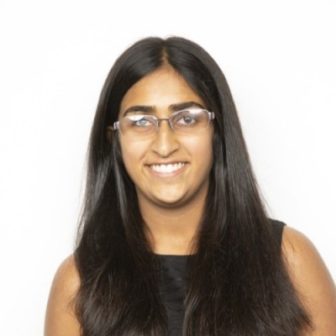
Trisha Kulkarni
Dayton, Ohio, USA
B.S. Candidate in Computer Science, Stanford University
Trisha is an incoming senior at Stanford University studying computer science with a minor in creative writing. This summer, she is working as a software engineering intern within the Office Experience Organization at Microsoft, while also proudly serving as the President of the National Association of Blind Students. Kulkarni is humbled to be taking part in this incredible opportunity and looks forward to building our future together.

Jim Kutsch, PhD
Morristown, New Jersey, USA
Retired President, The Seeing Eye
Jim served as President and CEO of The Seeing Eye from 2006 until he retired in December 2019. He served as Chair of the Board of the International Guide Dog Federation (IGDF), Chairman of the Morris Animal Foundation Board, President of the Council of U.S. Dog Guide Schools, and Chairman of the Board of National Industries for the Blind. Earlier, Kutsch was a Professor of Computer Science, a Distinguished Member of Technical Staff at Bell Laboratories, VP and Chief Information Officer at AT&T Universal Card Services, and VP of Strategic Technology at Convergys. His degrees include a Psychology BA and a Computer Science MS and PhD, as well as an honorary Doctorate for lifetime service to people with disabilities, including designing the first talking computer.
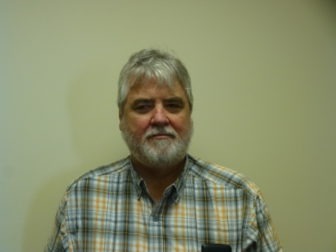
Jim Marks
Helena, Montana, USA
Program Director, Area IV Agency on Aging, Rocky Mountain Development Council
Previously, Jim served as the Director of Disability Services for Students at the University of Montana and as Montana’s director of vocational rehabilitation. Jim is the President of the National Federation of the Blind of Montana. He lives with his wife, Kathy. They have four adult children and six grandchildren.
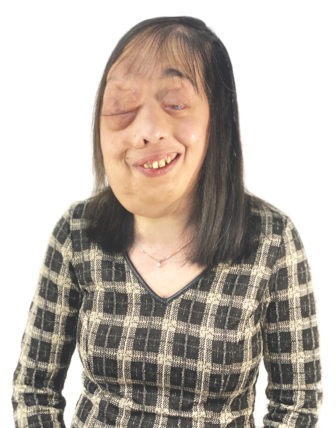
Natalina Martiniello, PhD
Montréal, Quebec, Canada
Research Associate, Université de Montréal; President of Braille Literacy Canada
Natalina is a Research Associate and teaches in the Graduate program in Visual Impairment and Rehabilitation at the Université de Montréal, in Montreal, Canada. She is the President of Braille Literacy Canada (the Canadian Braille Authority) and a strong advocate for braille literacy and accessibility. As a Certified Vision Rehabilitation Therapist, she has taught braille and access technologies to children, adults and seniors with visual impairments. Her research focuses on braille, adult learning and aging and on developing evidence-based strategies to support working-age and older adults who learn braille. An avid traveler, her most memorable trip was visiting the house of Louis Braille.
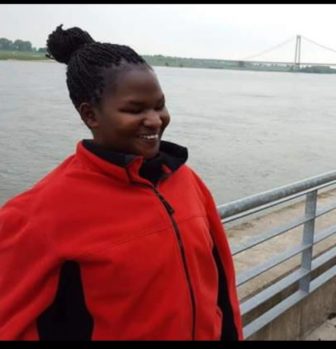
Florence Ndagire
Lawyer
Wakiso, Wakiso District, Uganda
Florence is the first visually impaired female lawyer in Uganda. She holds a Bachelor of Laws from Makerere University and a Master of Law in international and European human rights law at the University of Leeds, United Kingdom. She is currently enrolled at Makerere University in partnership with the London School of Hygiene and tropical medicine for her PhD research on access to reproductive health services by persons with disabilities in Uganda. She is the chairperson of the UN Women Regional civil society advisory group of East and Southern Africa. She is the current UNPRPD advisor. Florence is the primary author of “Will the proposed reforms in the mental health treatment act be consistent with Article 12 of the Convention on the rights of Persons with disabilities in Uganda?”
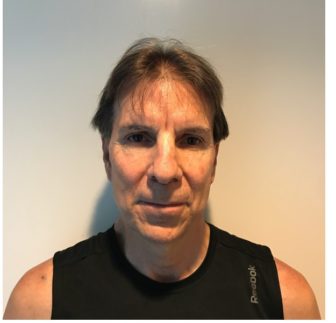
Walt Raineri
Northern California, USA
Partner Emeritus, Fenwick & West LLP
Walt’s legal and accounting professional, academic, philanthropic, entrepreneurial, and adaptive athletic sports careers span 45 years, and counting. He has practiced in the areas of international taxation, multinational mergers and acquisitions, and large group consolidations. Walt is also a CPA, a former Associate Professor at Golden Gate university, former Lecturer at UC Berkeley, and Stanford University. He founded four for profit companies, notably Ariat International, the equestrian clothing and footwear company. He is an alumnus of UC Berkeley School of Business Administration and Georgetown university School of Law. Walt is a Paralympic level athlete in multiple sports and has a passion to help others achieve their fitness objectives. He has helped guide dozens of nonprofit organizations focused on supporting the visually impaired community.
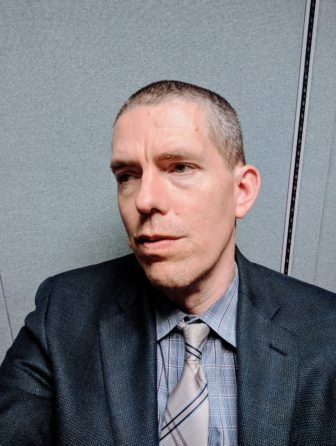
Will Schell, J.D.
Washington, D.C.
Deputy Chief of the Disability Rights Office, Federal Communications Commission
Among other things, Will manages the Disability Rights Office complaints team, drafts various guidance and orders and engages in outreach with the disability community. He also serves as the Designated Federal Officer of the Commission’s Disability Advisory Committee, which provides advice and recommendations to the Commission on a wide array of disability issues within the FCC’s jurisdiction. Prior to that, Will was a disability rights attorney at the Office for Civil Rights and at Disability Rights California where he represented people in litigation to prevent them from unnecessary segregation.
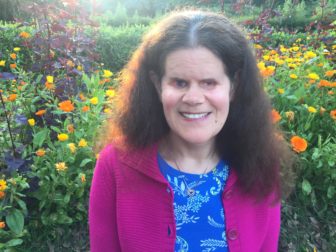
Abby White
Oxford, England, UK
Co-founder and Volunteer CEO, World Eye Cancer Hope
Abby’s mother was raised in France and her father in Kenya, where he was diagnosed with bilateral retinoblastoma in 1946. Her globally scattered family inspired her love for travel and study of geography at university, with emphasis on development in sub-Saharan Africa. Abby co-founded World Eye Cancer Hope, responding to the needs of one child with retinoblastoma in Botswana, and the desire to help many more worldwide. While working with the charity in 2015, Abby’s guide dog, Annie, became the first to visit Kenya – during a conference circuit that also took in South Africa and the USA.
She enjoys audio books, creative writing, open water swimming and long country walks. She lives in Oxford, England, with her current guide dog, Ritzie.

Joe Xavier
Elk Grove, California,
Director, California Department of Rehabilitation,
Joe Xavier has over 36 years of experience in business and public administration, as well as many years participating in advocacy and community organizations. As an immigrant, a blind consumer, a beneficiary of the DOR’s services, Joe has the experience and understands the challenges and opportunities available to individuals with disabilities, and the services required to maximize an individual’s full potential. Joe: believes in the talent and potential of individuals with disabilities; in investing in the future through creativity, ingenuity and innovation; ensuring decisions and actions are informed by interested individuals and groups; in pursuing excellence through continuous improvement; and preserving the public’s trust through compassionate and responsible provision of services.

